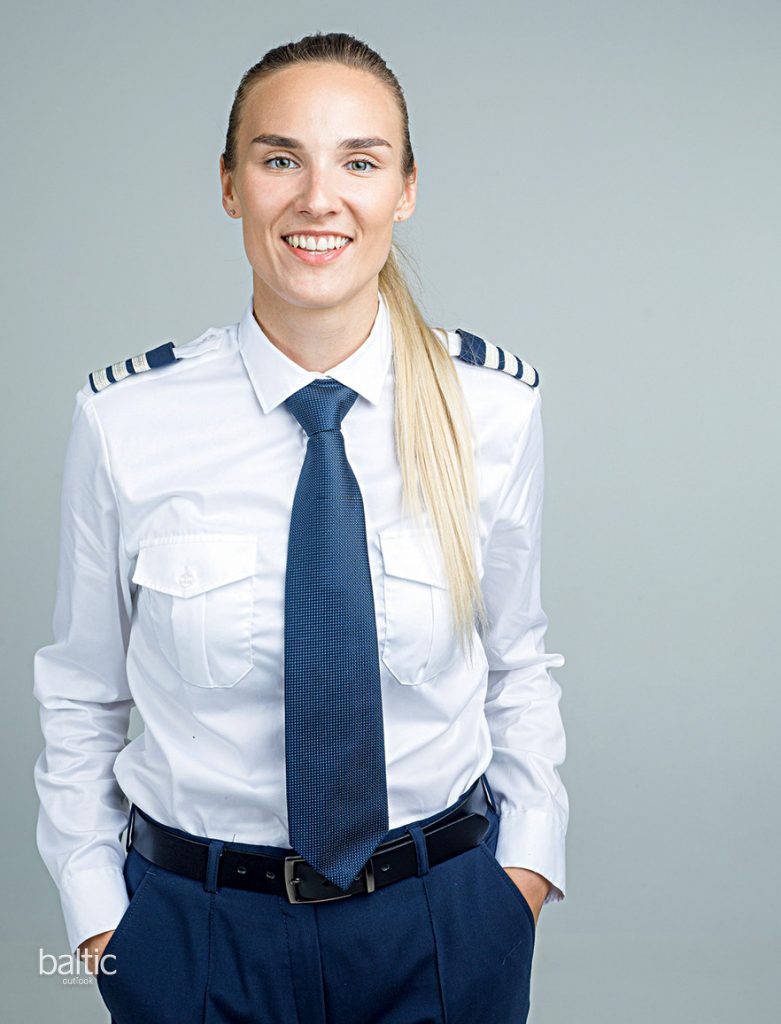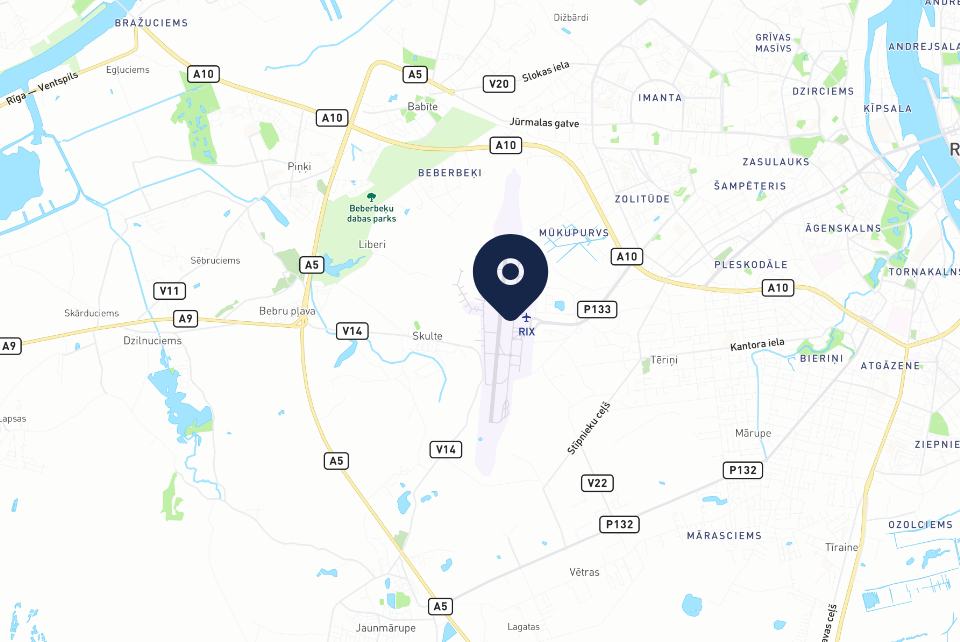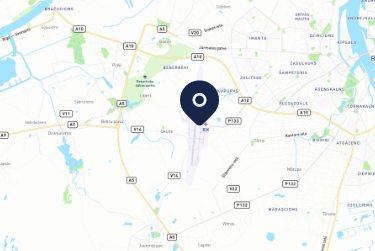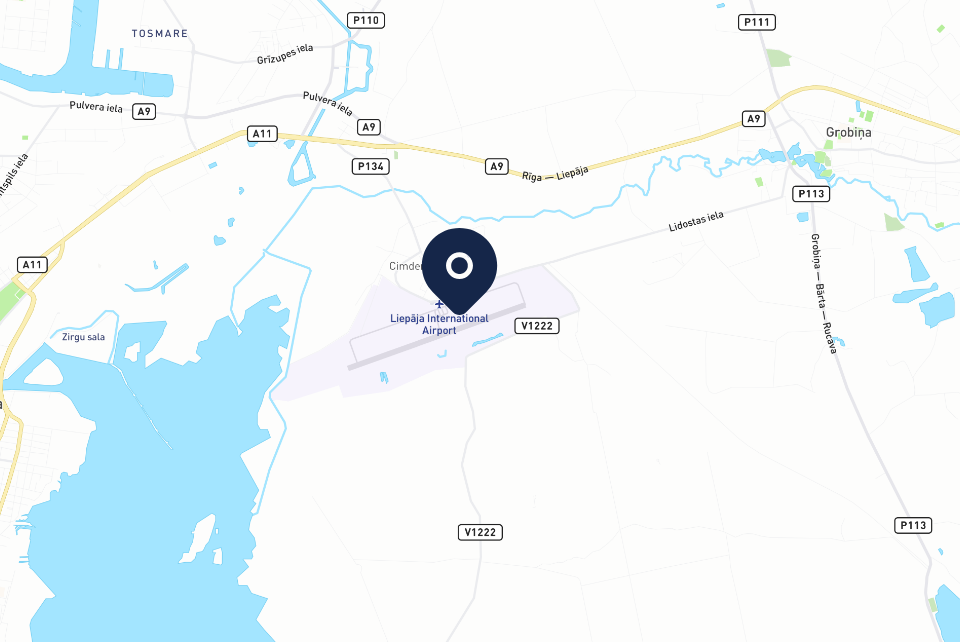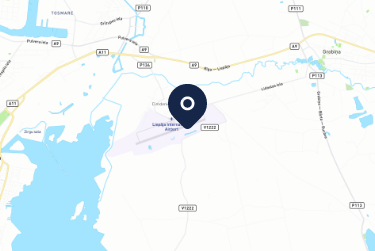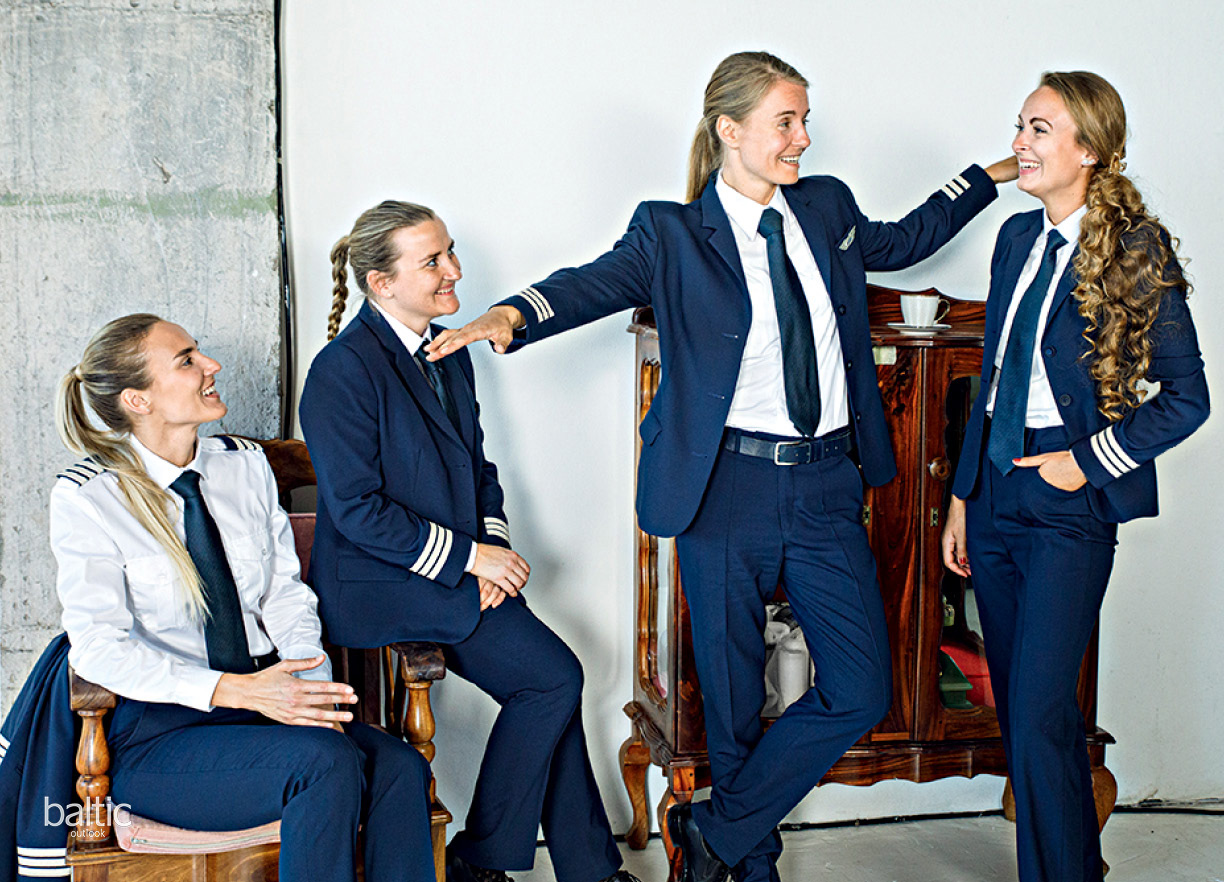
Words by Ilze Pole
Photo by Dmitrijs Suļžics (F64)
More and more young female pilots are joining airBaltic’s flight crew after the airline’s announcement a year ago that it is keeping its promise and starting to hire pilots again.
This was long-awaited news for those who had been laid off due to the pandemic and wanted to return to the flight deck, as well as for those who had just graduated from the airBaltic Pilot Academy (PA) and were eager to start their dream job. Meanwhile, to celebrate diversity and inclusion in the industry, the International Air Transport Association (IATA) has announced the winners of the third edition of the IATA Diversity & Inclusion Awards. This year airBaltic has been recognised as the winner of that award, which is one of the most prestigious HR awards in the industry. This sets an example not only in Latvia but also in Europe and proves that the very conscious approach airBaltic has been taking towards gender diversity is succeeding.
Since 2013, airBaltic has retained a gender balance within the company. Currently, 48% of airBaltic’s employees are women. In addition, 45% of airBaltic’s top management are women, and 64% of women in managerial positions have been promoted internally to their current job role. Right now, the airline employs 351 pilots, of whom 19 are women.
airBaltic is one of 20 organisations that signed the 25by2025 global initiative to raise awareness and increase the number of women in senior positions and under-represented areas by 25% or up to 25% by 2025. This means airBaltic is welcoming even more female pilots, giving them the opportunity to fulfil their dreams and to grow and spread their wings. In this case, almost quite literally.
But as with everything in life, it starts with being brave and saying out loud what it is what you want. Even if you’re the only person who hears it. Dreams can scare. Dreams may seem too big to even be dreamt. But these four young women we invited to share their stories followed through. ‘Don’t be too shy to name it,’ said Claudia Struwe, a PA graduate with her first flight still ahead of her.
Keir Lomp (30), from Estonia
HOW IT BEGAN
Keir says hers is a quite simple story – she knew since a very young age that she wanted to be a pilot. It was almost 20 years ago that she flew to London to visit her sister. The plane that day was a Boeing 737. ‘As soon as I took my seat, I knew straight away that this was it – I wanted to be a pilot and never changed my mind,’ she remembers. ‘People around me thought I was joking, but in a way, that made me want it even more. It actually made my life very easy, because I didn’t have to go through the trouble of figuring out what I want to do. I was completely hooked and very determined.’
Keir is from Estonia and feels super lucky that she had a chance to study at the Estonian Aviation Academy together with many people who are now airBaltic pilots.
ABOUT THAT JOKE
‘Well, yes, I’m a girl, I’m short, I used to have very blond hair, and I understand that if a little girl at the age of 12 says that she wants to be a pilot, of course people are going to say, “Yeah, sure…”,’ Keir says with a laugh. ‘But after that, I’ve never really had trouble with the fact that I’m a female pilot, because doing this has been my dream. People are rather amazed that I’ve taken this career path. And it makes sense that they’re surprised – it’s not so common a career path. But I’ve never heard any discouraging comments from anyone.’
Keir says she’s been lucky with her colleagues and also with her teachers at school and at the academy. ‘Maybe I had to prove myself at the beginning, and maybe it was my own feeling, but everybody’s been really nice to me.’
THE CHALLENGE
Keir had just started flying for airBaltic on Airbus A220-300 aircraft and felt like everything was going super smooth until, well… the Covid-19 pandemic hit. So she returned to Estonia and began working for her previous company again, flying the Saab 340, a small turbo-prop aircraft. She became a captain. She then completed a quality management study programme. She became a police officer.
‘I did a lot of things during that time!’ Keir says with a laugh. ‘I think that realising how quickly and unexpectedly things can change and how fragile the airline industry is was the most difficult thing for me.’
WORK-LIFE BALANCE
Even though flying the Saab 340 at the start of her career meant long weeks away from home and family, Keir still remembers those times as some of the most fulfilling and fun she ever had: ‘I was happy to work a lot, because when I did come home, it was extra nice to be with my family and friends, and it made me appreciate what I have even more.’
Now at airBaltic, the schedules are different, yet Keir is again away from home a lot. But she believes that if you really enjoy your job, it’s much easier to enjoy your free time and your life in general. ‘Before I started flying, I worked in the office of another airline as an operations control officer and in a call centre, so I know that not everyone likes their job. I’ve been there. Now I can really appreciate the fact that I have a job I really love. I think it makes me a happier person in general.’
STUDIES
The need to study a lot of physics and maths to become a pilot could be one of the things that put people off from dreaming about this profession. But Keir says she had a strong background in those subjects because she knew so early on that she wanted to become a pilot.
‘I was well prepared, but I think the main point is to want it enough,’ she says. ‘If you’ve decided to become a pilot, you have to be sure that you really want it. That you didn’t come in thinking, “Oh well, let’s see how it goes.” Because it can get hard. But if you’re very determined and know that this is what you want, you get used to hardships. It’s really about putting things into perspective and knowing that, in the end, it will be worth it. Even now, when I returned to airBaltic and had my line training, it wasn’t easy, because I had flown other aircraft in the meantime. But I knew that at the end I’d come out much stronger and that I’d regain my confidence. If you keep the end goal in your sights all the time, you know that the hard things will pass. You just have to know why you’re doing it.’
PERSONAL QUALITIES
It’s very common to say that being a good team member is the most important quality in a pilot, and Keir believes that it generally is true. The ability to get along with other people, the ability to come and work together, regardless of age, nationality, or personal views. ‘It makes such a difference if you have a good crew!’ she says. ‘I just recently had a really long day at work, almost maximum duty, but the crew was so nice. We didn’t even notice that we were tired, because we were having fun!’
THE DOWNSIDE
‘Being a pilot can get tough sometimes, both during training and when working,’ Keir admits. ‘You’ll be tested a lot, you’ll be in difficult situations, and you’ll make some decisions that you’ll later think could have been done differently. But it’s just a matter of knowing that a better day will come. And that the goal of the test was for you to learn something from it. And again – it’s all about putting things into perspective and understanding that it’s OK to have a bad day sometimes.’
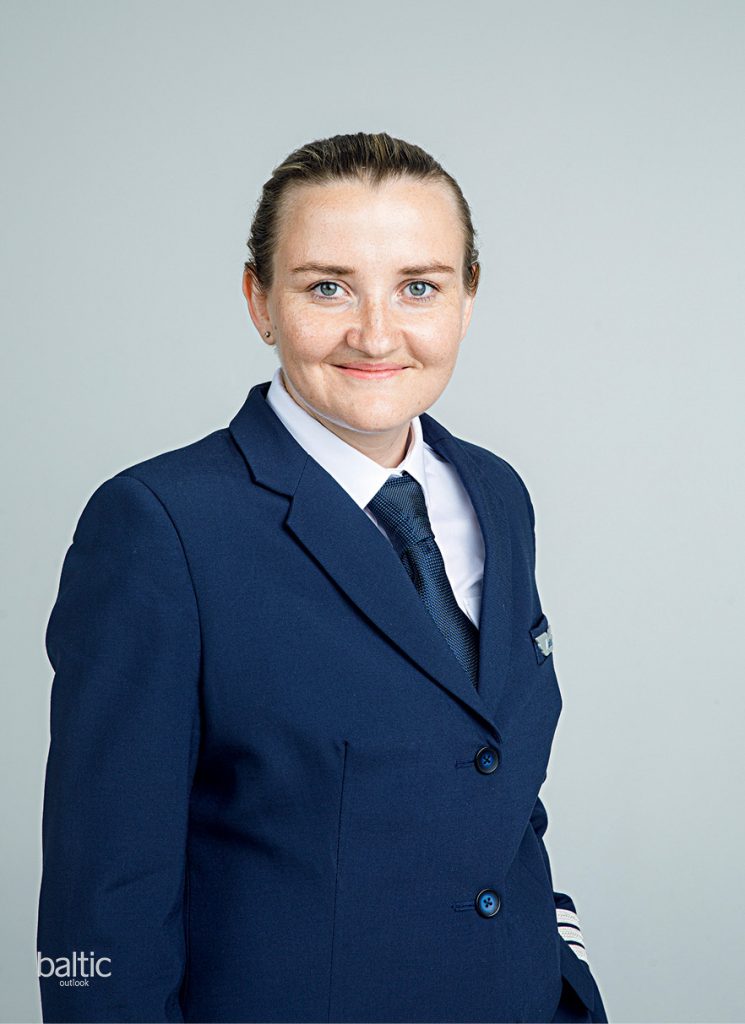
Elīna Štēbele (29), from Latvia
ABOUT MARKETING AND THE JOB INTERVIEW
Before becoming a pilot, Elīna worked in airBaltic’s marketing department for a year and a half, where she managed the social media department.
Yet in her interview for the marketing job, Elīna had admitted that her dream job was being a pilot. ‘The interview had actually already ended when they asked me what my dream job was,’ Elīna recalls. ‘Everyone has one – some people want to be an astronaut or a firefighter. Being a pilot had been my dream job, but it remained unfulfilled and I had given up on it.’
However, working in the marketing department at airBaltic changed her perception of what the pilot’s profession is: ‘I had assumed it was something so unattainable – like becoming an astronaut. But now I was meeting pilots who, like me, took the same bus to work, ate the same lunch as I did, and I saw that they’re not astronauts (laughs).’
Then airBaltic opened its Pilot Academy. Those same pilots Elīna had met while working at the airline encouraged her to apply to the school. ‘Yes, of course, they said I’d have to study a lot. They said I needed to know that I wanted it, but it was obvious to them that I did.’ So she applied and was accepted to the academy.
ABOUT THE DECISION TO BECOME A PILOT
Elīna’s closest friends and family reacted positively to her decision. She says that her family was very supportive, although at first they didn’t really understand why she needed it so much: ‘If I already had a good profession that allowed me see planes up close and even sit in a cockpit once in a while, why did I need anything more? (laughs) But I got a lot of support for my decision.’
Once you begin pilot school, it becomes the centre of your life and everything revolves around your studies. There’s really no free time, so you can forget about parties and family brunches on Sundays. It even affects personal relationships; your partner needs to be very accommodating and accept your schedule. ‘In a way, it’s also a lifestyle,’ Elīna says with a smile.
THE GOALS
‘At the very beginning, when you’ve just joined, the first goal is to simply get inside the cockpit,’ Elīna says laughing, ‘to feel what it’s like to fly, to capture the magic that surrounds flying. In my previous job, whenever I had to go out onto the airfield to take photos or film something, my goal was to make that a part of my everyday life. Now that I’m there and know what I need to do, I’m following the company’s goals and improving my own performance. That is, step by step I’m making myself an even better pilot.’
A pilot has many areas to keep working on: communication, technical knowledge of the aircraft, manual flying skills, etc. Every six months, pilots also undergo a simulator check. ‘Thank goodness, there are very few critical situations in everyday life, but they’re all played out in the simulator. So, compared to the very wide-ranging knowledge we have, we use very little of it in our day-to-day work,’ she says. ‘Every six months, we’re compelled to brush up on our knowledge in order to pass this test, but our actual job is to do so every day. And that depends on how disciplined and motivated each of us is.’
THE DREAM
Asked if she feels she has achieved her dream, Elīna says yes. ‘The days can be long and hard, flights may be delayed… sometimes it all just feels like one big delay, and some might be inclined to think, well, what a stupid day. But I still often feel like pinching myself because I can’t believe I’m actually flying!’ she says. ‘In a plane at almost the speed of sound! How cool is that? I still feel like this is a very extraordinary profession, and I’m overjoyed that it’s my job. It’s a remarkable feeling.’
THE CHALLENGES
There’s so much to learn. And one must motivate oneself to become a better and better pilot, because the standards set by the company are also very high. The pass rate for the exam is 80%. ‘Of course you can pass it with 80% and forget about it. But you can work on yourself and do even better! Be excellent and be extra!’ Elīna says regarding motivation. ‘You can read the manual that’s given to you, but you can also pick up another book and find out even more. I’ve made it my mission to stay motivated to learn, and to learn more and more. Which also results in extra confidence.’
STEREOTYPES
‘I won’t have any stories for you about negative attitudes, discrimination, or stereotypes, about being treated differently or people having different expectations of me just because I’m a woman,’ Elīna says. ‘We joke that only people not involved in aviation have the impression that such stereotypes are true. When you get into the cockpit, gender doesn’t matter. The main thing is that you do what you need to do, and you do it well. It’s not even politeness; it’s indifference (laughs).’
ABOUT ELĪNA’S BROTHER
When she began her studies at the Pilot Academy, Elīna’s brother, Aleksis, had recently begun secondary school. Then at one point, he announced to his family that he was also going to study at the PA. So, upon graduating from high school, he joined the academy. ‘I think he’s doing well,’ Elīna says. ‘I can encourage him to study and I can support him morally, because I know how difficult the process can be, but nothing more. He’s got to learn it all by himself.’
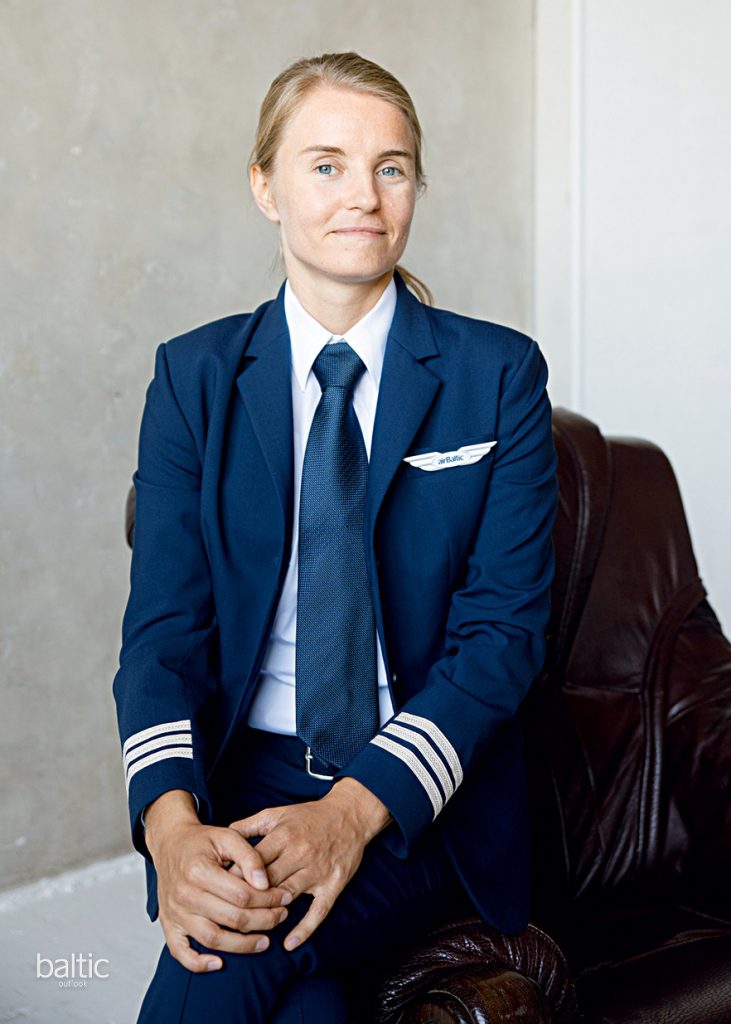
Claudia Struwe (24), from Germany
THE DREAM
Becoming a pilot was not a typical childhood dream for Claudia; instead, she discovered this profession when she was 16. She was fresh out of school and, as a typical teenager, didn’t know what to do with her life. But then one night – ‘And this is really true, I promise!’ she says – she had a dream that she wanted to fly a small single-engine aircraft. When she woke up, she knew exactly what she wanted to do.
Straight away, Claudia did a search on her phone to find out where she could try out flying. She found an available flight on a motor glider the following weekend, from an airfield close to her home. So she booked it, and her pilot turned out to be a 71-year-old woman. ‘And I fell in love with flying,’ Claudia says. ‘After that flight, my mother picked me up and I told her in the car that now I knew what I wanted to do in life, and that was to become a pilot.’
Her mother later said that she saw such vision in her daughter’s eyes that she simply couldn’t say no to Claudia.
After that experience, Claudia changed direction 180 degrees and decided to do whatever it took to fulfil her goal. She finished her apprenticeship, started high school, and already began looking for a flight school. The trouble was that most of the flight schools could not guarantee a job after completing training. This, however was very important to Claudia, because becoming a pilot costs a lot of money, and she felt a lot of responsibility towards her family in terms of financial investment.
One day, Claudia’s father brought her a copy of a magazine that contained an advertisement for the Pilot Academy in Riga: ‘I was reading about it and thought wow, this seems very promising, as there’s a job guarantee afterwards if you successfully pass all the exams.’ So in May 2019, Claudia applied to the airBaltic Pilot Academy and was accepted. She moved to Riga to start her studies in September.
ABOUT HER DEAREST AND NEAREST
‘My family has always supported me,’ says Claudia. ‘They said, if you want to do it, if it’s your dream and you want to fulfil it, we’ll help you. I’m quite lucky to have such a family – they’re always behind me.’ Claudia is an only child, and she thinks it might have been tough, and maybe a little scary, for her parents to let her go. ‘I was moving to a different country, to study to become a pilot… I can understand that. But still they supported me, and I appreciate it very much.’
The three years in flight school flew by very quickly. And with no comments or stereotypes about women flying. Claudia says she was accepted just like everyone else, which she finds quite nice.
ABOUT THE PILOT ACADEMY
‘I remember how impressed I was the first day I visited the training centre in Latvia. I had a good feeling and immediately knew that I had made the right choice,’ Claudia recalls.
Because of the pandemic, the studies took a year longer than expected, and she graduated in April of this year. Claudia says that the academy handled the remote learning process very well: ‘Of course, I missed the connection with my classmates. We were all on our own with our laptops in front of us, and that was a bit challenging, but still the time was used well. Because it was not possible to fly in the aircraft, we did our ATPL theory online as well.’ After graduating, Claudia started her type rating for the Airbus A220-300.
INSPIRATION
Claudia comes from Bavaria, which is known for its striking landscapes. On her first flight with the motor glider, she was taken through the mountains and recalls being very impressed by their beauty. But the pilot inspired her as well. Actually, she inspired her so much that she became Claudia’s role model. ‘I think it was a mixture of all the components I experienced that day,’ she says. ‘The landscape, the freedom to move in the air, my pilot – it all inspired me. I fell in love!’
THE FIRST FLIGHT
‘I’m looking forward to base training, which will start in a few weeks,’ Claudia says, ‘I’m looking forward to the feeling that I’m finally flying this aircraft. I think it’s just amazing to be there on the flight deck and see the runway in front of you. It must be unbelievable to do it in real life!’ But she’s also looking forward to meeting her new colleagues and is ready to soak up more knowledge and learn from their experience.
FOR ENCOURAGEMENT
Claudia has two main recommendations for girls and women who are thinking about becoming pilots: ‘First, don’t be too shy to name your goal. If you want to become a pilot, say it out loud! Believe in yourself that you can do it, and do it! And second, stay positive and love what you’re doing. It’s a long and hard process, and if you’re not 100% behind it, it might be difficult. If you’re doing it for the money or the status, that’s the wrong mindset. You have to be passionate about flying itself. Make sure you are!’
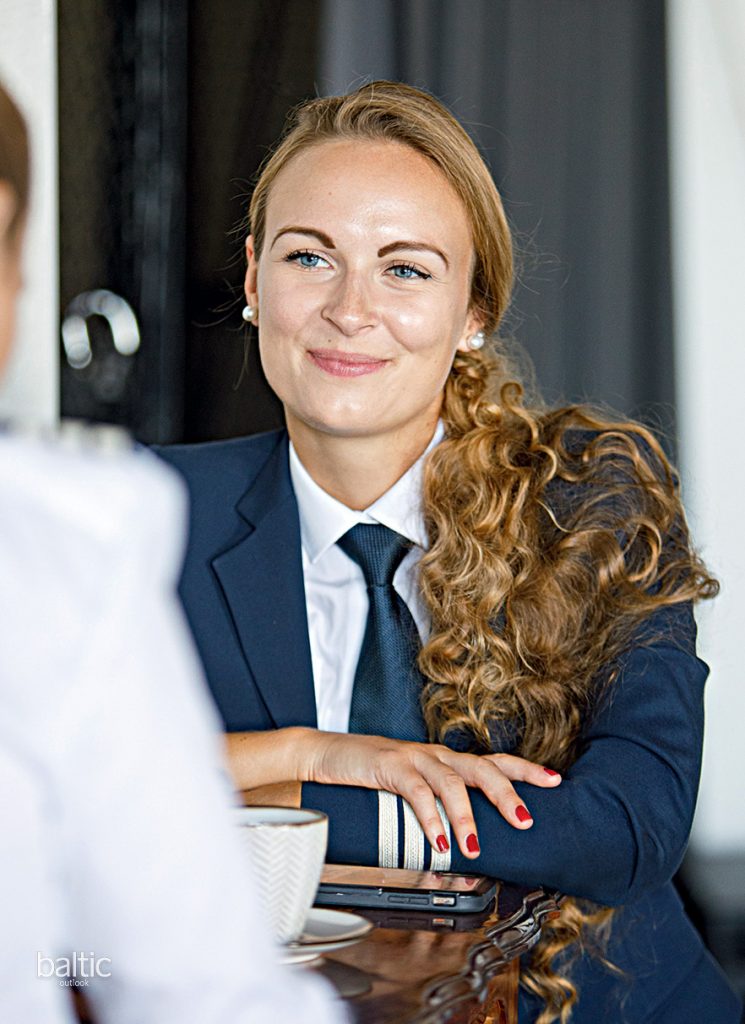
Annika Ruusmae (27), from Estonia
GLIDERS
Annika’s best friend’s mother flew gliders, and when Annika was 13, she started going to the gliders’ club with them. ‘We used to go to Ridali Airfield together. It was in the countryside, and there was always this very nice, enjoyable atmosphere,’ Annika recalls. ‘And I always felt this amazing aviation spirit in the air. That was when I realised that flying might be something that I would really enjoy.’ She started flying gliders in the club, but after beginning aircraft piloting studies at the Estonian Aviation Academy, she put glider flying on standby.
NO PLAN B
Before Annika began her studies, people would ask what she was going to do if she didn’t get into the aviation academy. ‘I had a backup plan,’ Annika admits, ‘but I told everybody that it wasn’t an option, that I would get in!’
She studied for four years, got a bachelor’s degree and pilot license, and her initial plan was to fly fighter jets: ‘I wanted to fly the L39 Albatros, which is a high-performance jet trainer aircraft. Everybody in my course knew that, if possible, I was going to join the Estonian Air Force and fly the Albatros. That was my dream, and that’s what I thought I was going to do.’
Annika graduated in 2018, which was a very good time in aviation; companies were hiring and looking for pilots. Although it was a very difficult decision for her, in the end she decided to go into commercial aviation instead. She didn’t even go to the military for an assessment: ‘It was a very difficult and calculated decision, and I didn’t want to start the process knowing that I was not going to join.’
FIGHTER JETS
Annika applied for positions at commercial airlines and came to work for airBaltic. First, she flew DashQ400 aircraft, until Covid-19 hit… Because she hadn’t been working at airBaltic for very long, she was let go, along with 200 other pilots. At first, she thought she’d take this time out for herself and just see what would happen. But then she found out that the Estonian Air Force had started hiring again and spotted her chance!
‘When I was flying the DashQ 400, I remember there was a French captain who had flown for the military. One time he showed me some pictures of flying fighter jets, and I was like, “Damn! Maybe I should have done that…” I even felt jealous!’ Annika recalls, laughing.
The Air Force hired five new pilots, and Annika was one of them. She flew two types of aircraft: the PZL M28 Skytruck, but mostly the L39 Albatros, doing intercept flights and training troops on the ground. ‘I really enjoyed it!’ she says. ‘It was a great aircraft to fly, and it was a lot of fun. But I nevertheless felt that I wanted to get back to commercial aviation, because I realised there are more options to grow as a pilot, and to get more flight hours, of course.’
When airBaltic began rehiring pilots, Annika joined the airline again.
THE CHALLENGES
‘Exams!’ Annika laughs. ‘The training was very intense, but also very rewarding, because at the end I had a pilot licence in my hands!’
‘But no, the stereotypes aren’t a challenge for me, I haven’t felt anything of that sort. I’ve never felt anyone thinking less of me as a pilot because I’m a woman,’ she says. ‘My colleagues and I, we do the same thing, we share the same values, and we’re here for the same goals.’
GETTING READY
‘Whatever you do, you have to enjoy what you’re doing, because that’s what keeps you getting through tough times, especially in aviation,’ Annika says. ‘If you really love and enjoy this job, expect a lot of good times!’
‘The downside,’ she continues, ‘is that you don’t work Monday to Friday from nine to five, and sometimes you’re unable to attend family events and birthdays. A “normal” family life is not possible, but then, it really depends on what we consider normal. That said, airBaltic is such a good company that if you do need a particular day off and didn’t get it through the regular processes – the bidding system, requests, etc. – you can even go to the chief pilot’s office and ask for help. They always try to do the best they can. Simply knowing that you have this possibility, that the office is standing behind you and trying to make everything work, is a very, very good thing.’
Annika says that she’s a person who always tries to find solutions: ‘If there’s a problem, I’ll figure it out! I think all pilots have this kind of problem-solving attitude towards life in general; they’re problem solvers by nature. Although, of course, there’ll always be someone who always finds something to whine about and not be happy. I think it’s more of a question about how you look at your life considering how much you have in hand.’
ABOUT airBaltic
Annika says she really loves the fact that the people who work for airBaltic love their jobs – the pilots, the cabin crew, all the office employees, everybody’s there with their whole heart, and that makes everything happen.
‘I wouldn’t say there’s anything too difficult in this profession,’ she adds, ‘because if you have this entire team around you, everything’s going to work out!’
